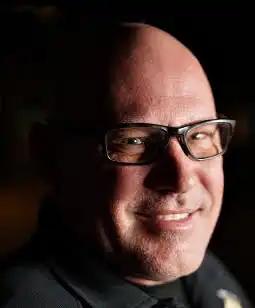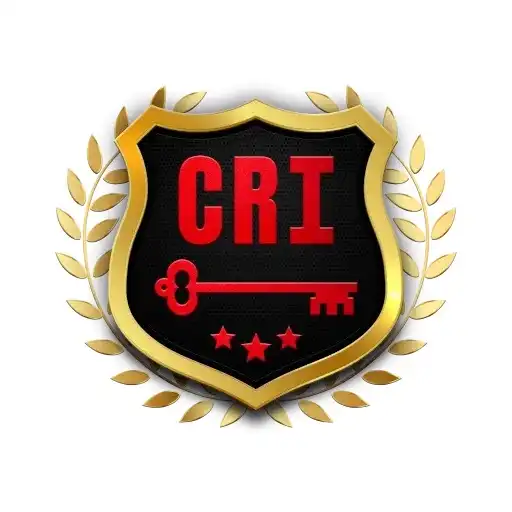
25 Oct, 2023 in Ethics and Integrity

John Gabrielson, CEO
Crime Reduction Institute
November 7, 2017, edited October 25, 2023
I am reminded each time tragedy hits our nation that fearless sheepdogs are ready to answer the call. The men and women who put on the blue uniform do so because, at some point in their lives, they felt a calling. They felt a calling to help people, serve people, and make our society better by fighting crime. It sounds cliche, but it is true.
However, over time, police officers can get run down and begin to feel there is nothing good left in this world. Police Officers see all the sin and are never to partake. They work hard, putting criminals in jail. But all too often, those same criminals are back on the street committing the same crime the next day.
The media beats the American police officer like a drum if he or she defends themselves, and it looks ugly. Even if they are right, the officer’s department may come after them for minor policy violations. Too often, these decisions are made to appease politically correct groups to ensure everything looks fair, impartial, and transparent. Stuck in the middle is the patrol officer, just trying to do their job and get home safely to their families at the end of each shift.
Every officer, including myself, shows up every day to defend those who hate us the most. Many of my brothers and sisters have fallen into being gunned down in the line of duty. In 2016, five of America’s sheepdogs were murdered protecting protesters calling for their death in Dallas, Texas. When a crisis hits, and people are running, the police officer rushes in towards the danger. Police officers are called when planes crash into buildings, crazy men shoot their guns into innocent concertgoers and churches, or a jihadist drives his truck into a crowd screaming “Allah Akbar.” These same officers are called to check on a bike left on the side of the road, deal with a loose dog, or settle a civil disturbance between two people. Despite the courage and bravery shown by most police officers, there is little fanfare or appreciation for what police officers are called to do. From the extraordinary to the mundane, there is little understanding of what, why, and how of policing in America today. The idea of public virtue has been lost; without virtue, there is no freedom. As a nation, the ideals of being an excellent, virtuous citizen need to be renewed. I believe this renewal must start with law enforcement and the individual officer.
For many police officers, the cynicism creeps in and devours them like a lion. Some turn to alcohol or risky behavior to beat the stress. Others turn to illicit affairs or criminal activity, succumbing to the sin and stress produced by this job. Often forgotten are those officers who have taken their own lives with their duty weapons because of the horrors they face or a broken family, marriage, or death they may be dealing with in their own lives.
I believe this can change if the mindset of police officers on the street is focused on being a servant. We need to remember why we wanted to be a police officer in the first place. I believe that when we focus on serving others, thus taking the focus off ourselves, it will produce joy and fulfillment in life.
Every officer must balance the service of the public with being a pure crime fighter. The roles must complement each other. I believe serving the public must be our priority as we fight crime. When police culture focuses on serving the public, trust will begin to be rebuilt. As trust grows, it will bring police officers and the community together. We, as police officers, need to seek opportunities to engage regular people outside the criminal element. Our job is a balance between catching criminals, solving crime, and being a compassionate counselor, social worker, pastor, and dog catcher all at the same time.
This focus on being a servant requires every officer to step out of his or her comfort zone and embrace this renewed mindset. After all, the motto “To Protect and Serve” is still valid and should be the primary mission of all police officers.
I want to take a moment and encourage my fellow officers to remember why they serve. Too often, we fall into an us versus them mentality, believing everyone is out to get us. We begin to trust no one, seeing a potential threat in everything we do. This leads to the citizen becoming the enemy. The line between the sheep and the wolf begins to be blurred. We no longer see sheep but rather wolves dressed in sheep clothing. This mindset is devastating for officers because it isolates them from the public.
As police officers, we need to be safe and have a mindset that acknowledges the potential danger faced on every traffic stop, alarm call, crash, domestic disturbance, or any other incident we may respond to on the streets. We must have a will to win and overcome any attack, being a fierce and fiery warrior. It is paramount to prepare the mentality to become that warrior. However, the warrior's mindset should not be our default operating platform. Instead, we must respond to calls, remembering we are a guardian of the peace and a servant to the public first and warrior second.
When we step out of that patrol car or off that motorcycle and approach the citizen, we must do so with grace and peace, coupled with a powerful presence. Stand with our shoulders back and heads held high, uniforms neat and clean, always keeping our gun side turned away and gun hand free, ready to become a warrior. This readiness can be achieved with a smile on our face, a pleasant spirit, and a soft tone. Our uniform and badge display our authority, and it does not need an arrogant, condescending attitude to join it. We must remember to treat the reporting person, the victim, or the suspect with respect and dignity until they give us a reason not to. If our default operating status is to be a jerk, rude, and short right from the start, we reinforce the stereotype held by too many Americans who believe police officers are brutes. This gruff treatment of citizens, without cause, feeds into the growing divide between us and the public we are supposed to serve.
What is a servant? A servant is a person who performs duties for other people. Most often, people think of a servant as someone serving a master or personal employer. In the true sense of being a servant, we must acknowledge that the public truly is our employer. Without public dollars, we have no salary. The cities we work for hire police officers to protect and serve the public. With this task, we get the power to arrest and take people's freedom. It is a tremendous power and must carried out in humility. I will admit, sometimes I hate taking stupid calls, answering dumb questions, giving directions, directing traffic, and wondering why people call 911 for such nonsense. Why do I feel this way sometimes? Because I want to be out catching criminals, doing real police work, making a difference. However, after nineteen years as a police officer, I realized that fighting crime and making arrests is only one part of my job. The other part is being in the community as a servant, ready to help my fellow citizens.
I know this sounds touchy-feely, and officers don’t like touchy-feely. I know officers cringe when police departments try to shove cultural diversity, fair and impartial policing, or sensitivity training down our throats. We feel our departments, the public, and the media are accusing us of being racially insensitive while performing our duties. However, the reality is that 99 percent of us serve with integrity, discipline, and courage, acting fairly and impartially. Still, I believe it is good to remind ourselves of our role as a servant because it is how to rebuild community trust.
When we carry out our duties, we must treat the public as if they are our family members. Ask yourself, “How would you like your wife, husband, son, or daughter to be treated by the police.” With this thought in mind, never forget every person we deal with is someone’s mom, dad, brother, sister, aunt, uncle, grandma, or grandpa. With this mindset, we begin to look for the good among the sins, and what follows is treating people with respect. A servant's mindset leads to fair and impartial policing.
There are evil people in this world, and there are those who take advantage of the system, but this is not most people. Unfortunately, it is the criminal low life we all deal with day in and day out. Most people are hardworking, just trying to get through life the same as you and me. They are like sheep who run into each other from time to time. It is our job to be there when they need us.
Here are three simple steps I take to make a difference. I believe these three simple acts of service will begin to change our mindset as officers. As a culture, we need to develop the mindset of a servant first, guardian second, and warrior third. I challenge my fellow officers to apply these three simple practices during patrol shifts.
1. While on patrol, try to say hi or hello to five citizens each day, smiling at them and engaging them in some conversation while not on a call. Talk to them about the game the night before, the beautiful weather, or anything that creates a smile. You may be surprised at the citizen's reaction.
2. Get out of your patrol car and do something nice for a fellow citizen. Engage in the act of giving. Buy them a cup of coffee or lunch, carry some bottled water, and give it to the transient you typically arrest. Believe it or not, you will begin to build trust and see the public in a different light.
Giving may impact someone who does not like the police, thus changing their mindset. It makes you human and moves you from being only an enforcer and a person to fear, turning you into a person to trust with a big heart. I have found that when we give, it comes back four-fold.
3. Find a way to volunteer in your community. Whether through your church or other organization, thus setting aside time to give back. Volunteering in schools, the local soup kitchen or the boys and girls club allows you to interact with people outside your job. You can meet people on a different level. When you get out into the community working for good, it builds trust.
In summary, we are all servants charged to be guardians of the law, the peace, and the public. Being a servant is action. Service is not a feeling and starts with you, the individual officer. The public is not our enemy. It is who we serve. As Sir Robert Peel reminds us, “We, the police, are the public, and the public are the police.”

The Crime Reduction Institute is an organization dedicated to developing and implementing crime reduction strategies through community policing, engagement, evidence-based practices, and training courses in areas like de-escalation, emergency preparedness, personal safety, and crime prevention.